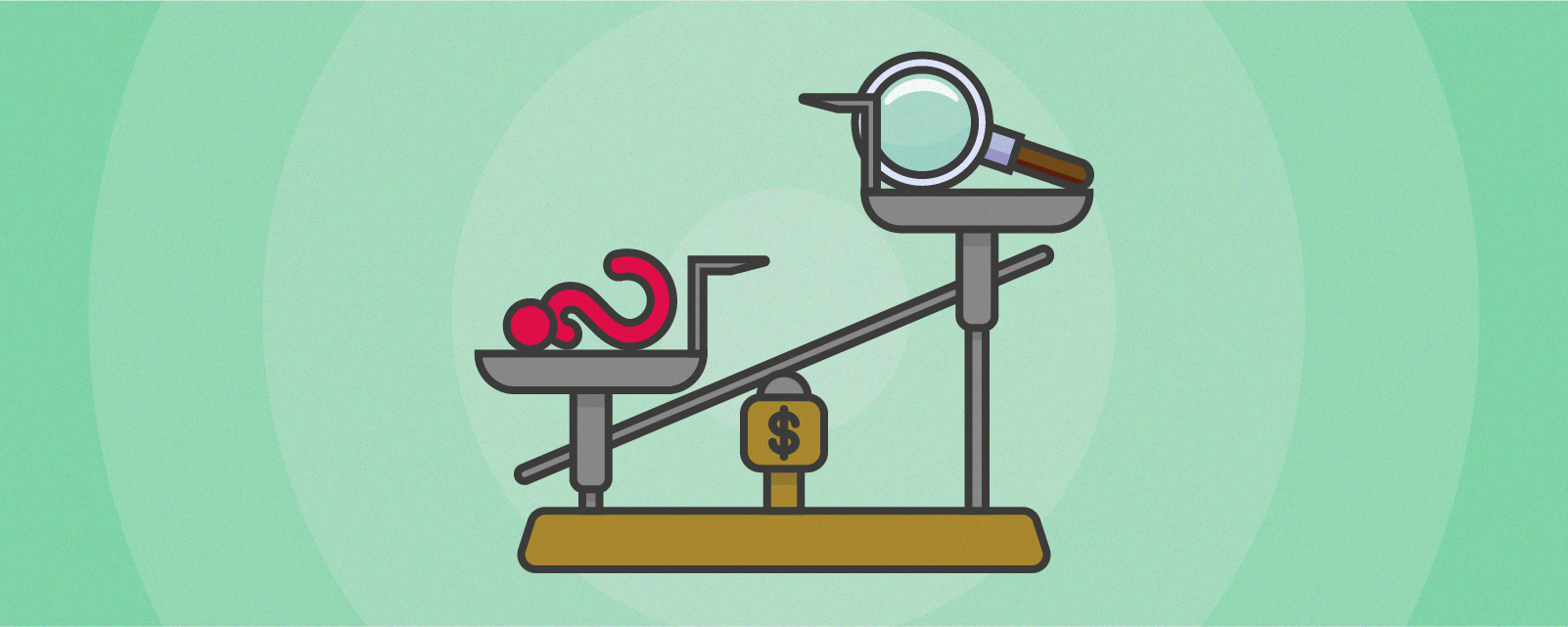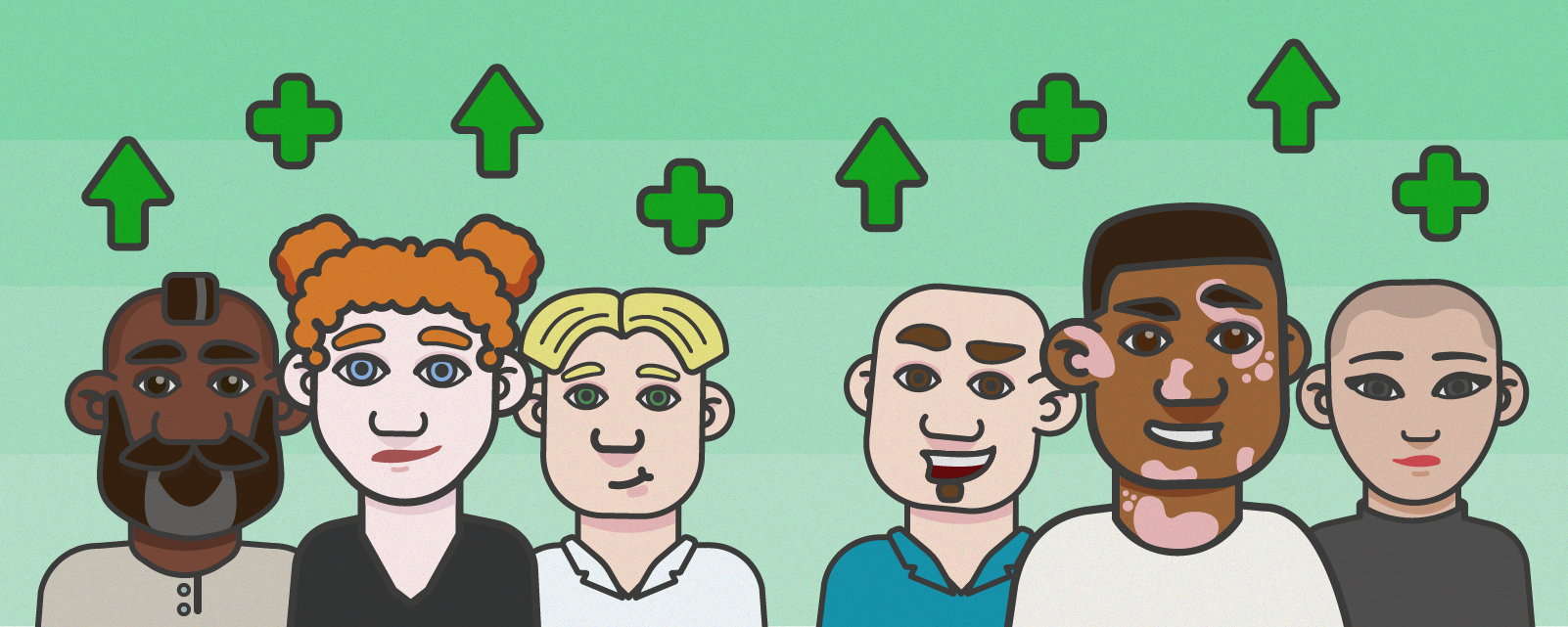
Did you play guessing games as a kid? It’s a great way to prevent boredom on a long trip or during a school break. The problem appears when guessing becomes a way of doing business.
If someone bases their product strategy on guesses and unproven assumptions, they build a product that they like to have—but not necessarily anybody else’s.
The data-informed app development process can help you change that. Let’s see why user research is so important and how it can affect your business.
TL;DR
- UX research helps reduce business risk. Business owners and project teams may assume they understand their target users, but this oversimplifies the situation. In-house teams may have a limited perspective, knowing the product too well. User research helps them uncover diverse external outlooks on the matter.
- User research can save time and money during the development process. Understanding users’ true motivations and problems helps us find solutions to their real needs. It prevents wasteful spending on unnecessary features and increases the chances of app interest and long-term use.
- Such research helps you track progress. But first, you need to set clear goals and choose relevant metrics to measure success. For more accurate results, utilize a mix of user research techniques (qualitative and quantitative), such as app analytics, surveys, usability tests, and interviews with potential users.
- With user research, you can find new opportunities for product upgrades. It reveals user struggles and motivations and allows for fresh perspectives on the app.
- Identifying a new target audience is easier with research insights. It is especially useful for companies that already have web apps and enter the mobile market.
- Surveys, tests, and other research methods support marketing and sales. They enhance ad targeting and customer engagement by understanding user preferences and barriers to purchase. It also guides marketing content and messaging to attract potential customers.
User research in the mobile app development process
Before the development and QA testing begin, before the UI designer prepares the wireframes, there’s a Product Discovery phase. It’s dedicated to the research – it’s when we try to find out more about the people who will use our app.
It lets us better understand the users, what motivates them, what they prefer, what problems they have to deal with, etc. Such information supports the business in many ways. So, why is user research important in app development?
1. It helps you reduce risk in business
The book of failed business plans is full of stories that start with the words, “I am a businessman, but I am also a user, so I know what other users want.”.
Business owners and members of the project teams often consider themselves representatives of a target group. In such a case, there’s no need to consult any other potential users, right? Well, it’s not that simple.
As one of the most important contributor to your project, you know the product in and out. You’re well aware why the user flow was designed in a given way and what has lead to decisions that shaped the app. This narrows down your perspective.
Someone outside of a project who doesn’t know your line of thinking might have a completely different outlook on the matter. That’s what user research helps you with. When you know people’s true motivations and problems, you can answer their real needs. It increases the chance that your app will arouse interest, and people will be more inclined to try it out. This way, you also reduce the risk that they won’t enjoy using it in the long run.
Example
Let’s say you travel by plane a lot. Unfortunately, you often have a problem remembering how big luggage you can take on board. Different airlines have different regulations. You assume there are many other people like you. The idea sounds promising, so you invest time and money in a project, you build an app, and… it turns out nobody is interested. Prior research could drive you to that conclusion much earlier. Instead of wasting your resources, you could’ve been focusing on people’s real needs and getting to know different perspectives.

2. It allows you to save time & money on development
Some people who have never tried user research before believe that it’s an expensive and time-consuming process. But do you know what really takes a lot of time and money? The app programming.
User research isn’t the additional cost to the project – it’s a tool that helps preventing you from wasting resources on features people don’t need (even though it’s easy to think they do). Building unnecessary elements requires much bigger budget than conducting a research.
But cards on a table—what’s really the deal with UX research and time? The truth is, it all depends on the project. When choosing the right methods and recruiting respondents, we take many aspects into account. For example, what kind of people are your potential users, or how important the context is? We also consider how much time we have for this phase and what the budget is. We use all this information to create the optimal research plan.

With valuable data from the research, you can make informed decisions and focus on the things that bring you closer to success. And if you’re afraid that you have to allocate more resources at the beginning of the process than you’d expected – remember that in subsequent phases, you will pay less for the development.
3. It shows you whether you’re making progress
If your app is already on the market, you probably continuously add or change some elements to make it more attractive to users. However, you need to check whether these efforts really create a positive user experience.
For this reason, determine what are your goals and choose metrics that will measure your success. Keep them in mind when creating research questions. They should help you find the answers related to issues important to your business.
Example
Business goal: To get 15% more clients with the mobile app compared to the web app in a 3-month period.
Research question: what makes users get back to the app?
Metrics to check: the number of active users and new accounts, retention
Pro tip Mix different user research techniques to find reliable info. Take a look at both qualitative and quantitative data. Check the analytics, send surveys, conduct usability tests, or interview potential users. Based on such insights, you will be able to evaluate your UX/UI design decisions and see how they affect the business.

4. It enables identifying opportunities worth taking
When you know your product and the market for years, it’s more difficult to spot the loopholes and constantly come up with innovations. User research helps you find the opportunities you can offer to upgrade the product.
The better you know the users and their changing preferences, the easier it becomes to see what they find interesting and what they lack. User interviews and tests shift the perspective and allow you to look at the app with fresh eyes. It’s recommended to combine research insights with results from the UX audit to get a bigger picture.
Keep in mind that interviews with (potential) clients won’t give you the ready-to-use solutions. You have to come up with them on your own. But it’s much more simple when you realize what are people’s struggles and motivations.
5. It gives you an edge over the competitors
It’s best to learn from the mistakes of others. Your competition, to be precise. User research methods can help you with this. How? Focus on competitors’ products and communication for a start.
Prepare analysis and conduct in-depth interviews to see how people use their apps. Find out what they don’t like about them and what they enjoy. It’s a great source of knowledge if you don’t want to repeat other companies’ mistakes and also get inspired. This way, you’re always a step ahead.
Use case
Dan is a product manager on an m-commerce project. He thinks that the competition’s product has some nice-looking, fancy filters, so he wants to implement similar ones. Before the design process begins, he conducts research to check what users think about this design. It turns out that they all consider it eye-catching but unintuitive. Pretty or not, the design’s priority is to help people find the information they seek. Finally, the idea is rejected due to usability issues.
6. It tells you who could be your next target group
Many companies decide to develop a mobile app when they already have a web one. But the target users of their new product might be different. Thus, the communication and information architecture must be designed accordingly. How can you find out who your next target audience should be? Conduct user research, of course!
Quantitative research methods (such as surveys, polls, or web analytics) enable you to collect numerical data like demographics. They are recommended, for example, when you want to analyze what are the trends and general preferences of people in different age ranges.
Qualitative methods (e.g., focus groups, usability tests, interviews) are useful when you’re trying to understand why people act in a certain manner and what motivates them to undertake certain actions.
You can use this information when ideating and designing the app.
7. It supports marketing and sales
User experience research provides outcomes that support more than just the app development team. Both marketing and sales departments profit from this. Based on these insights, they can improve ad targeting and address users who are most likely to be interested in the offer.
It’s much easier to talk to customers when you know what usually stops them from making a purchase. It’s not always something they are willing to say directly to the customer service.
Well-conducted research should give you a hint on what topics the marketing should concentrate on. This information can be used to identify what potential customers might need and what could encourage them to get interested in your app. The results of the research are also useful when you prepare user stories or customer journey maps.

Wrap up
Skipping user research is not recommended when you want the app to be intuitive, functional, and marketable.
You can use various user research techniques to discover the information that leads to better solutions and ideas that answer users’ real problems. This way, you build a positive user experience and increase your chances of achieving business goals.
User research plays an important role in the UX design process and is useful during Product Discovery workshops. If you want to see how it can support your project, just let us know so we can help you out.
Find out more:







